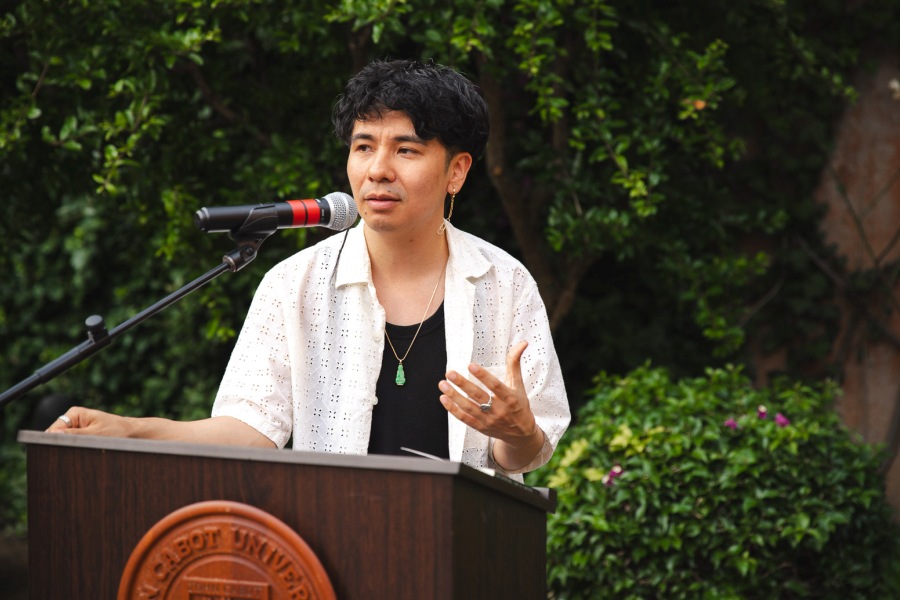Professor Stefan Sorgner Publishes Four Essays in Transhumanism Collection
On May 1st, 2017, the essay collection “Nietzsche and Transhumanism: Precursor or Enemy?” edited by Yunus Tuncel, will be published. Transhumanism is an intellectual movement that seeks to transcend the current human condition through the use of new and emerging technologies. An example of transhumanism, even if an extreme one, would be an idea suggested by Ray Kurzweil: mind uploading, or the uploading of one’s consciousness into a computer network.
The collection deals with the question of whether Nietzsche can be seen as a precursor of transhumanism or not. The discussion circles around reflections by JCU Professor Stefan Sorgner, who has written four articles for this collection which also contains a basic outline of his Nietzschean transhumanism. Debates on the topic have existed for some years, particularly in the Journal of Evolution and Technology and The Agonist. This book combines existing papers from these journals with new material. The collection addresses a variety of issues to show whether or not there is a close connection between transhumanist concerns for progress and technology and Nietzsche’s ideas.
Due to his ground-breaking work in the field of Posthuman Studies, Professor Sorgner was also invited to give several keynote presentations during the following weeks:
- Posthuman Aesthetics, March 2017, Aarhus
- Transhumanism and Theology, April 2017, Münster
- Posthuman Studies and the Cyborg, April 2017, Hannover
- Posthuman Aesthetics and the Posthuman, April 2017, European Graduate School, Valletta
- Rebooting Ethics and Posthuman Studies, April 2017, Singularity University Geneva and Rockefeller Foundation, Bellagio
- Genes, CRISPR/Cas 9, and Posthumans, May 2017, Arad
Professor Stefan Sorgner, a member of JCU’s faculty since 2016, is one of the world’s leading post- and transhumanist philosophers. He is director and co-founder of the Beyond Humanism Network, Fellow at the Institute for Ethics and Emerging Technologies (IEET), Visiting Fellow at the Ethics Centre of the Friedrich-Schiller-University Jena and Research Fellow at the Ewha Institute for the Humanities at Ewha Womans University in Seoul. He is also one of the organizers of the 9th Beyond Humanism Conference which will take place at John Cabot University from the 19th of July through the 22nd, 2017. The topic of this year’s conference is: “Posthuman Studies – Humanities, Metahumanities, Posthumanities.”





